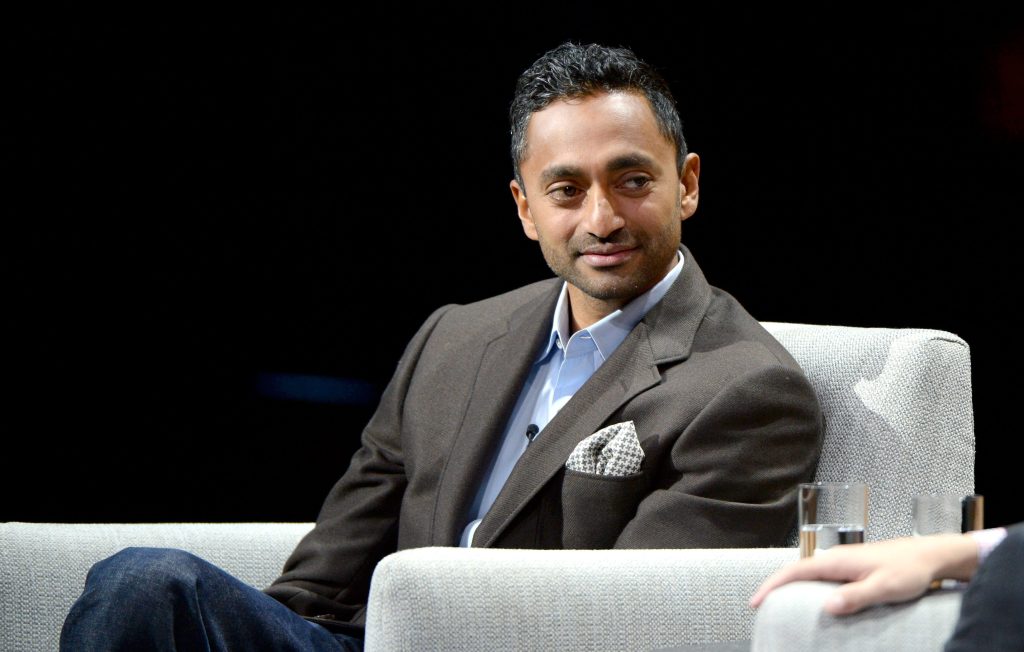Nearly three years ago, a special purpose acquisition vehicle (SPAC) spearheaded by investor Chamath Palihapitiya took the space tourism company Virgin Galactic public. It was the first human spaceflight company to trade on the NYSE — or any exchange, for that matter — and it was so successful that it almost immediately kicked off a SPAC frenzy.
The beauty of the mechanism, as Palihapitiya suggested to us last year, is that SPACs aren’t burdened by the same disclosures associated with the traditional initial public offering process. Whereas old-school IPOs are backwards looking and tell investors what a company has accomplished, a SPAC “actually allows you to raise a really large amount of money, to go to a broad base of institutional investors, and it allows you to tell them what you think the future can look like,” he said.
But the good times could only last so long. By late spring of last year, the frenzy cooled as the SEC introduced new accounting guidelines for SPACs and hinted that tougher rules were coming. By the time the broader stock market slump arrived this past March, prompted by rising inflation, SPACs were no longer seen as a panacea for taking private companies public. Related deals were instead seen as toxic to retail investors, many of whom lost money by investing in overly optimistic projections by companies that quickly fell short of their promises.
Now, in a kind of bookend for the era, Palihapitiya — who has raised money for 10 SPACs altogether — announced in a blog post today that he will wind down two SPACs that raised $460 million and $1.15 billion, respectively, after failing to find a suitable merger candidate for either.
Palihapitiya is hardly alone in having to return money to investors. Hedge-fund manager Bill Ackman, real estate billionaire Sam Zell and baseball executive Billy Beane are among others to shut down blank-check companies this year after enthusiasm for the vehicles dissipated.
Many more SPAC sponsors are expected to do the same. Fully 247 SPACs were closed in 2020, and another 613 of them came together in the first half of last year before the SEC made it quite so plain that it planned to do more on the regulatory front.
Those many blank-check companies need to find suitable targets in a market turned bearish, and the clock is ticking. Given that blank-check companies are typically expected to merge with a target company within 24 months of investors funding the SPAC, if those hundreds of SPACs can’t complete mergers with candidate companies within the first half of next year, they’ll either have to wind down (which can mean millions of lost dollars for SPAC sponsors) or else seek out shareholder approval for extensions.
Given that the time between when a deal is announced and when the SEC has time to review it can take up to five months, according to SPACInsider, the picture looks, well, bleak for many of those efforts.
As for Palihapitiya, you have to credit his timing. He’s losing the money he spent on the two SPACs he is now winding down, but he tells the WSJ that his investment firm, Social Capital Holdings, has made about $750 million by sponsoring half a dozen other SPAC deals. In addition to Virgin Galactic, these include the online real estate business Opendoor, insurer Clover Health, the financial services outfit SoFi and two biotech companies: Akili and ProKidney Corp. All have had a rocky time on the public market and a terrible 2022 in particular, though the same is currently true of many companies that went public through the traditional IPO process.
Some may resent Social Capital’s gains. In Palihapitiya’s many CNBC appearances in recent years, he aggressively extolled the virtues of SPACs, whereas in his post earlier today — a mere 273-word investor update — Palihapitiya simply called SPACs “one of many tools in our toolkit to support companies as they enter subsequent stages of growth.”
Still, while the language was notably muted, it’s also consistent with what Palihapitiya has been saying all along, including to The New Yorker in May of last year, and in a live interview with TechCrunch a year ago, when we talked at length about his SPAC dealings.
When asked at the outset, for example, whether Palihapitiya envisioned the craze that his Virgin Galactic deal kicked off, he said he didn’t expect there would be “this much activity. But it somewhat makes sense,” he continued, “because whenever there is any innovation of any kind, you tend to see this euphoric fervor, right? That’s always the first phase of something is just all these people getting extremely excited. And then you have what people sometimes [call] this valley of disillusionment. And then you have a long-term business . . .”
The “big important takeaway,” he then insisted of SPACs, is that “in the hands of the right people,” they’re a “really important tool.”
Time will tell if investors still agree. Palihapitiya is still seeking out targets for two other SPACs, with nearly a year to work his magic.
The two SPACs, each of which hold $250 million, are both facing deadlines next summer.































Comment